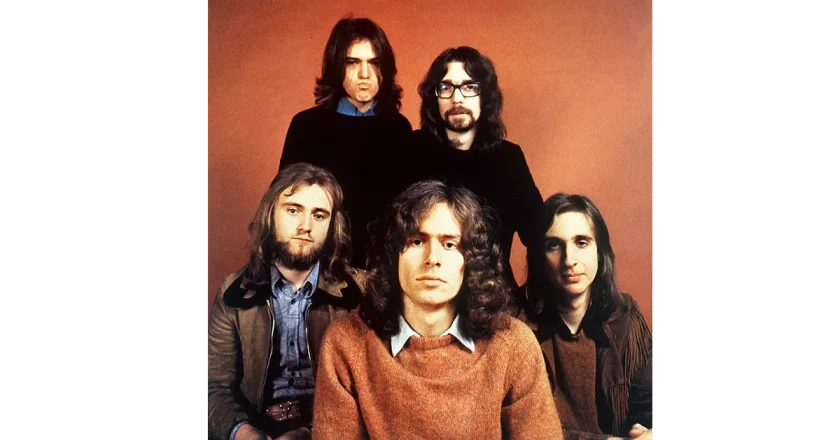Genesis: The Evolution of a British Rock Icon
Genesis, formed in 1967 in England, stands as one of the most influential rock bands, shaping both the progressive rock and pop rock genres. Initially driven by key members like Peter Gabriel and Steve Hackett, Genesis produced groundbreaking albums that pushed the boundaries of music, before transitioning to a pop-oriented sound that garnered global acclaim in later years.
Early Beginnings and the Classic Lineup
Genesis began at Charterhouse School, where Tony Banks (keyboards), Mike Rutherford (bass/guitar), Peter Gabriel (vocals), and Anthony Phillips (guitar) started playing together. In its early years, the band experimented with a folk-inspired sound. In 1970, after Anthony Phillips’ departure, Steve Hackett (guitar) and Phil Collins (drums) joined, forming the “classic lineup,” which went on to create Genesis’s most progressive and iconic works.
The Steve Hackett Effect on Genesis’s Sound
Steve Hackett’s arrival was a pivotal moment for the band’s musical direction. His unique guitar techniques, especially his use of tapping, added a layer of depth and richness to Genesis’s sound. Beginning with the Nursery Cryme (1971) album, Hackett became an essential part of the Genesis sound, contributing a melancholic and theatrical touch that helped establish the group as a key player in progressive rock.
Landmark Albums: Foxtrot, Selling England by the Pound, and The Lamb Lies Down on Broadway
Foxtrot (1972) – This album established Genesis’s reputation in the progressive rock scene. The 23-minute track “Supper’s Ready” is an epic masterpiece, embodying the experimental spirit of the band.
Selling England by the Pound (1973) – Often regarded as the pinnacle of their work, this album includes classics like “Firth of Fifth,” featuring one of Hackett’s most celebrated guitar solos. The album was critically acclaimed and solidified Genesis’s standing in progressive rock.
The Lamb Lies Down on Broadway (1974) – This final album with Peter Gabriel is an ambitious concept piece with a surreal storyline set in New York. It allowed Genesis to fully express their theatricality and storytelling abilities.
Lineup Changes and the Shift to Pop Rock
With the departure of Peter Gabriel in 1975 and Steve Hackett in 1977, Genesis saw a major shift. Phil Collins took over as lead vocalist, and along with Tony Banks and Mike Rutherford, the band developed a more accessible pop sound. Albums like Duke, Abacab, and Invisible Touch in the 1980s achieved massive commercial success, propelling Genesis to the forefront of pop rock.
Steve Hackett’s Solo Career and Progressive Legacy
In 1977, Steve Hackett left Genesis to pursue a solo career, where he remained true to progressive rock. His solo work is celebrated for its creativity and depth, continuing to influence the progressive scene and maintaining his legacy as a masterful musician.
The Lasting Influence and Legacy of Genesis
Genesis left an undeniable mark on both progressive and pop rock. With legendary members like Peter Gabriel, Phil Collins, Steve Hackett, and Tony Banks, the band is known for its complex musical structures, symphonic influences, and poetic lyrics. Their blend of theatrical stage presence and high-quality musicianship cemented their place in rock history.
As an enduring symbol of innovation, Genesis’s legacy continues to inspire new generations of musicians and fans alike. Thanks to Steve Hackett’s contributions and the band’s iconic sound, Genesis remains one of the most influential bands in rock history.






Pingback: Dream Theater: Virtuosismo, Épica Y Metal Progresivo